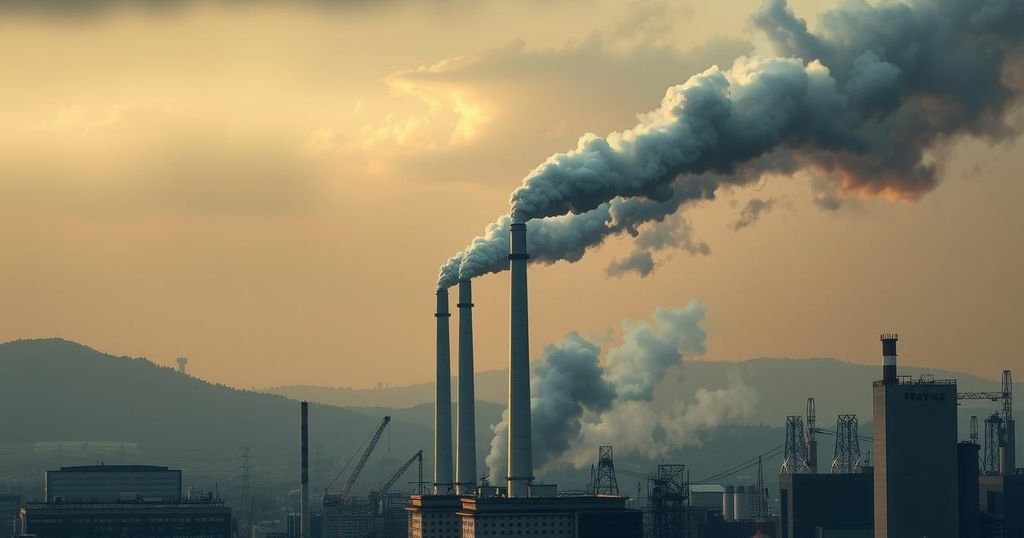The 2024 World Air Quality report reveals Chad and Bangladesh as the most polluted countries, with only seven nations meeting WHO air quality standards. India has the majority of the world’s most polluted cities, while pollution monitoring remains inadequate in many areas. Recent U.S. policy cuts have hindered vital data collection. Regional cooperation is essential to address air quality challenges effectively.
The 2024 World Air Quality report by IQAir indicates that Chad and Bangladesh are the most polluted countries globally, with New Delhi, India, named the most polluted capital city. Alarmingly, only seven countries—Australia, New Zealand, the Bahamas, Barbados, Grenada, Estonia, and Iceland—met World Health Organization (WHO) air quality guidelines, highlighting a critical air quality crisis particularly in developing regions.
Seventy-four out of the top 100 most polluted cities are located in India, marking a slight improvement from 83 last year. Despite a 7% national decline in PM2.5 levels, India remains ranked fifth in terms of air pollution, exceeding WHO guidelines by tenfold. Nationally, only 17% of around 9,000 surveyed cities met the WHO standard for PM2.5, which is set at an average of 5 micrograms per cubic meter.
Disparities in monitoring arise, as pollution reporting in Africa remains limited, with only 24 out of 54 countries providing data in 2024. Notably, recent U.S. government actions, including cuts to air quality monitoring at embassies, have severely impacted data collection globally. This reduced surveillance may hinder public health and air quality policies, notably in developing nations where data is scarce.
India’s ranking is lowered due to its extensive air quality monitoring network, capturing data from rural regions. Contrarily, Pakistan and Bangladesh have limited monitoring that skews their pollution averages higher, particularly due to urban-centric data collection. The report emphasizes the necessity of regional cooperation among South Asian nations to address trans-boundary pollution, which is exacerbated by shared pollution sources.
In northern India, where extreme pollution persists, cities in the Indo-Gangetic Plain experience severe air quality challenges, leading to emergency measures during high pollution episodes. The Indian government aims to coordinate pollution control strategies across this populous region, potentially leveraging its advanced monitoring systems.
Despite a general decline in air pollution, major cities in China face contrasting results, with some areas witnessing pollution decreases while others see increases. Similarly, Indonesia remains the most polluted country in Southeast Asia despite a decrease in 2024, posing challenges related to clean energy development.
Furthermore, air pollution in Vietnam has significantly impacted the economy, with efforts underway to raise awareness and improve air quality monitoring. The cleanest air is recorded in Honoka’a, Hawaii, showcasing a stark contrast to heavily polluted regions worldwide.
This year’s air quality report serves as an urgent call for global action, highlighting the need for enhanced monitoring and cooperative strategies to combat pollution effectively and protect public health across affected regions.
In summary, the 2024 World Air Quality report reveals alarming pollution levels globally, with only a handful of countries meeting WHO standards. Chad and Bangladesh rank as the most polluted nations, and India’s large cities remain at the forefront of pollution challenges. Increasingly vital air quality monitoring, particularly in developing regions, is undermined by recent governmental data reduction measures. Regional cooperation is paramount to combat trans-boundary pollution effectively among South Asian nations, emphasizing the urgency of a unified global response to this pressing health crisis.
Original Source: healthpolicy-watch.news






